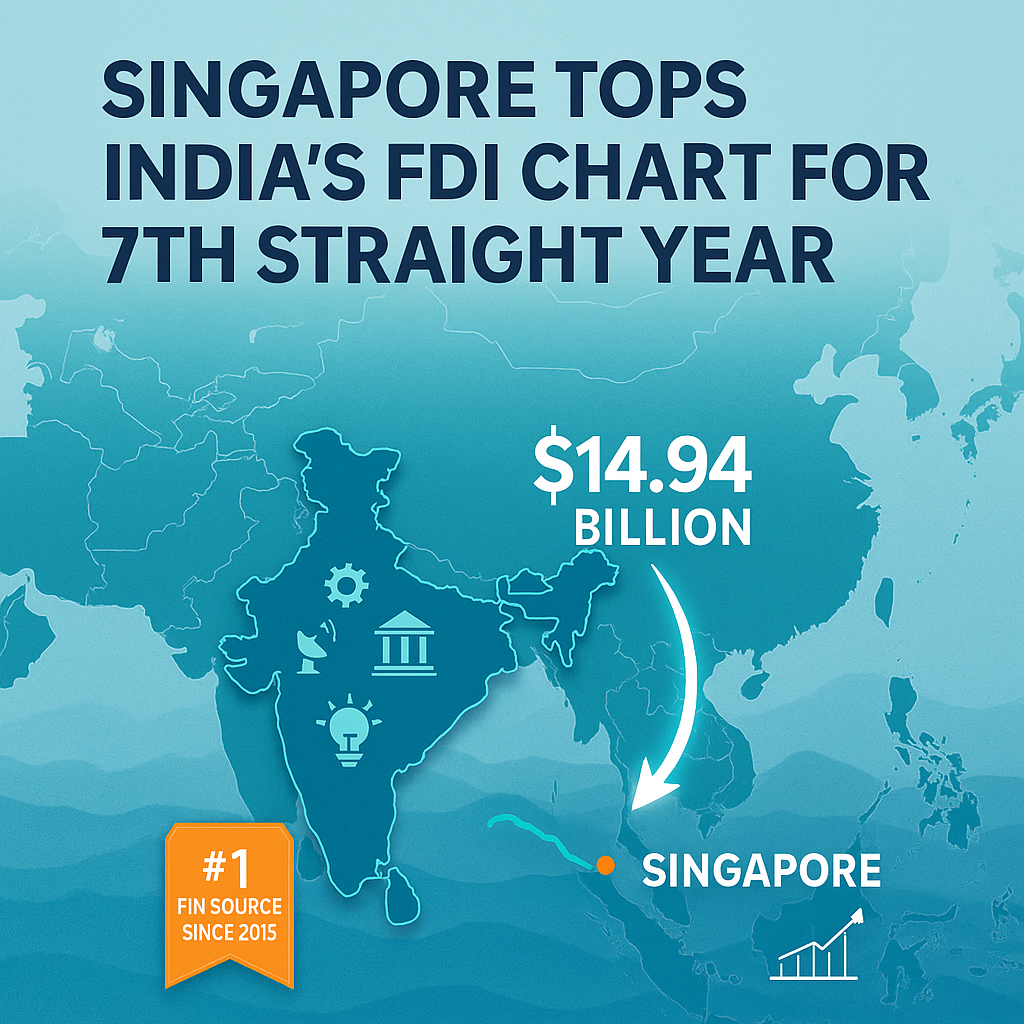As per the most recent government data, Singapore’s FDI inflows increased to $14.94 billion from $11.77 billion in the previous fiscal year and accounted for almost 19% of India’s overall FDI inflow. The small island nation has regularly been the leading contributor of foreign direct investment to India since 2018-19, overtaking countries like Mauritius.

In 2024-25, India experienced a 13% increase in overall FDI inflows, reaching $50 billion. The overall FDI hit $81.04 billion (including reinvested earnings and other capital), the highest level in three years. Mauritius, previously a top investor, contributed $8.43 billion in the previous fiscal year.
Some other major sources of FDI include the United States ($5.45 billion), the Netherlands ($4.62 billion), the UAE ($3.12 billion), Japan ($2.47 billion), Cyprus ($1.2 billion), the United Kingdom ($795 million), Germany ($469 million), and the Cayman Islands ($371 million).
According to experts, Singapore’s success can be attributed to its standing as a worldwide financial centre, strong legal system, and strategic location as a hub for private equity and venture capital investments. The Double Tax Avoidance Agreement between India and Singapore is the icing on the cake.
FDI is crucial for India’s economic growth, as it facilitates infrastructure development projects and strengthens the rupee versus world currencies, the US dollar, in particular.